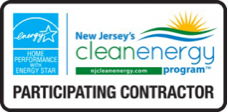If you’ve been thinking about making your home more energy-efficient, then what better day to make a change than Earth Day? When it comes to tackling climate change, it can start within your home. There are many energy-efficient things that you can do: you can try to use less energy, limit your water usage and participate in things like recycling. Want to find out more? Take a look below.
Household Energy Efficiency Plays a Role in Climate Change
Homes that use energy from fossil fuels are significant contributors to climate change. The US has recognized that when homes are more energy-efficient, this reduces Co2 emissions at a very low cost. To help make a change, you can improve the energy efficiency of your home. It may be that you use less energy on a day-to-day basis, sign up with a green energy provider, or that you try and conserve as much as you can in any way. Either way, if you can make some small changes, then you will be helping to do your part for the environment and your family.
How can You Make a Difference? Get an Energy Audit Done First
To find out how energy efficient your home is, you should start by having an Energy Audit done. By completing an energy audit, you’ll find out what areas need improvement. This will help to remove the guessing game and will give you the confidence you need to ensure that you are doing your part for the environment. When you call B&E for your energy audit, the whole thing will take around an hour. You will be able to see what you can improve on and how much you could save. This is an easy way for you to make sure that your home is moving forward on the path toward energy efficiency.
Using Less Energy Impacts the Environment
When you look at the typical mix of energy generation, you will see that it uses a lot of fossil fuels like Natural Gas, Oil, and Coal. The less energy you use, the less utility companies will have to provide. This means less carbon emission overall. It’s important to remember that pollution released from power plants will contribute to climate change as well. One way for you to do your part is to limit the amount of energy you use so that less pressure is put on these resources.
Get Rebates to Make your Home More Energy-Efficient!
Saving energy also saves money while greatly improving the comfort of your home. When you insulate and air seal, your home will stay warmer in the winter and cooler in the summer. You’ll use less energy and your home will be more comfortable. When you insulate your home with a NJ Home Performance Contractor like B&E Energy Solutions, you’ll have access to zero-interest financing combined with cash rebate options offered through the NJ Home Performance with Energy Star (HPwES) Utility Programs and their participating contractors. These will help you offset some of the cost that comes with making your home more energy-efficient. The NJ HPwES programs offer up to $15,000 in zero-interest financing along with rebates of up to $5,000 for qualified energy improvements.
Heater and Energy Efficiency
If your heater is nearing the end of its useful lifespan or needs constant repairs, then it may be time to replace it with an Energy Star rated high efficient one from B&E. With new high efficient heating, cooling, and hot water heaters you’ll improve your home’s comfort and reduce your energy consumption at the same time. The NJ HPwES zero % financing and rebates mentioned above should be looked into when you are doing any Energy-Related improvements
Air Conditioning and Energy
Your home may be ok in the winter, but don’t forget about air conditioning season. If you have an older air conditioner nearing the end of its useful lifespan, or it needs constant repairs, it may not control the temperature and humidity as well as you’d like. The air conditioner could be using more energy than it should to cool your home, which in turn is costing you money. B&E offers Energy Star rated high efficient air conditioners through the NJ HPwES program with access to the financing and rebates mentioned above to help you with the cost of your new system.
Domestic Water Heating
In most homes, the Hot Water Heater is running 24 hours a day to have hot water available at any time. Over the course of a year, it’s one of the larger energy users in the home. Through the NJ HPwES Program, B&E offers new Energy Star high efficient water heating tanks, and, very high efficient on-demand style water heaters that do not store water, they heat it as it passes through. The supply is endless, so no more running out of hot water!
Checklist for Things You Can Do Right Now to Improve your Home’s Thermal Energy Efficiency
- Seal drafts and air leaks
- Insulate your home
- Upgrade your Heating system
- Upgrade your Air Conditioner
- Upgrade your Hot Water Heater
- Use programmable thermostats
The Danger of Single-Use Plastics Around the Home
If you use a lot of single-use plastics and other materials like cans & glass jars around the home, there are small steps that you can take in addition to improving the energy efficiency of your home. Start to cut out single-use plastics as much as possible. Try to buy products that do not have a lot of packaging and limit your use of plastic bags. Recycle everything that can be, and know that by recycling half of your household waste and reusing carrier bags, you can help make a difference.
The Importance of Making your Home Water Efficient
Less demand for energy means that less fossil fuels are harvested and there is less demand from power plants. Domestic water efficiency plays a big part in climate change as well? Less demand for water means less extracting, treating, pumping, and heating of water. This drastically reduces greenhouse emissions that could include Co2. If you want to try and use less water in your home, then here are a few steps that you can take:
- Install low-flow showerheads
- Wash full loads of laundry
- Only run your dishwasher when it is full
- Turn off the tap when you brush your teeth
- Create a schedule for watering your lawn
- Harvest rainwater
Using water-saving techniques will also help you to save money. Less water is used and, less wastewater has to be treated. With each water-saving step, you help, twice.
Using less energy is one of the best ways for you to positively impact the environment. If you want to do your part, then please contact us at B&E https://beinsulated.com/contact/





